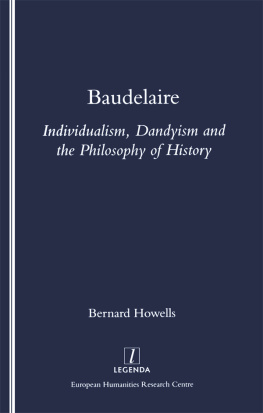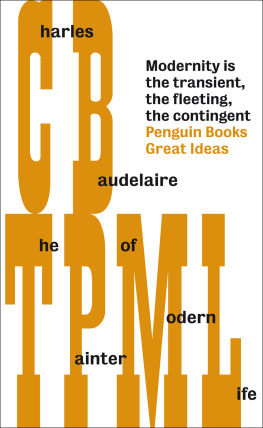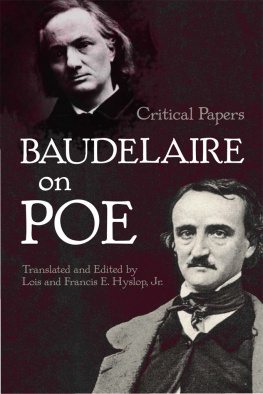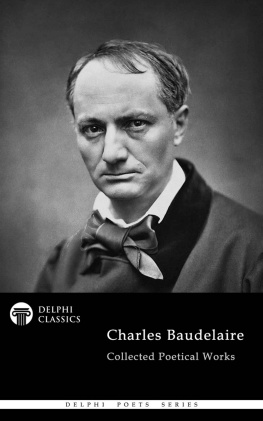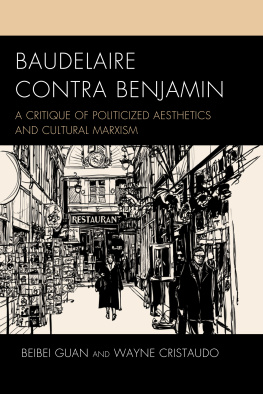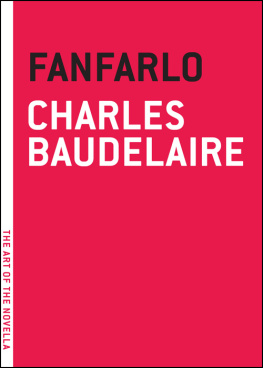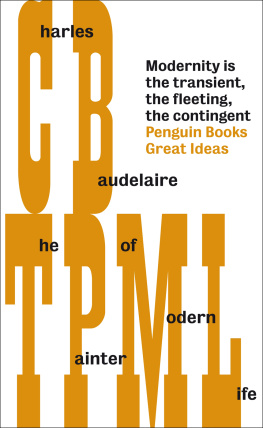Baudelaire Charles - Formal Revolution in the Work of Baudelaire and Flaubert
Here you can read online Baudelaire Charles - Formal Revolution in the Work of Baudelaire and Flaubert full text of the book (entire story) in english for free. Download pdf and epub, get meaning, cover and reviews about this ebook. City: Newark, year: 2012, publisher: University of Delaware Press, genre: Art. Description of the work, (preface) as well as reviews are available. Best literature library LitArk.com created for fans of good reading and offers a wide selection of genres:
Romance novel
Science fiction
Adventure
Detective
Science
History
Home and family
Prose
Art
Politics
Computer
Non-fiction
Religion
Business
Children
Humor
Choose a favorite category and find really read worthwhile books. Enjoy immersion in the world of imagination, feel the emotions of the characters or learn something new for yourself, make an fascinating discovery.
- Book:Formal Revolution in the Work of Baudelaire and Flaubert
- Author:
- Publisher:University of Delaware Press
- Genre:
- Year:2012
- City:Newark
- Rating:3 / 5
- Favourites:Add to favourites
- Your mark:
- 60
- 1
- 2
- 3
- 4
- 5
Formal Revolution in the Work of Baudelaire and Flaubert: summary, description and annotation
We offer to read an annotation, description, summary or preface (depends on what the author of the book "Formal Revolution in the Work of Baudelaire and Flaubert" wrote himself). If you haven't found the necessary information about the book — write in the comments, we will try to find it.
Baudelaire Charles: author's other books
Who wrote Formal Revolution in the Work of Baudelaire and Flaubert? Find out the surname, the name of the author of the book and a list of all author's works by series.
Formal Revolution in the Work of Baudelaire and Flaubert — read online for free the complete book (whole text) full work
Below is the text of the book, divided by pages. System saving the place of the last page read, allows you to conveniently read the book "Formal Revolution in the Work of Baudelaire and Flaubert" online for free, without having to search again every time where you left off. Put a bookmark, and you can go to the page where you finished reading at any time.
Font size:
Interval:
Bookmark:
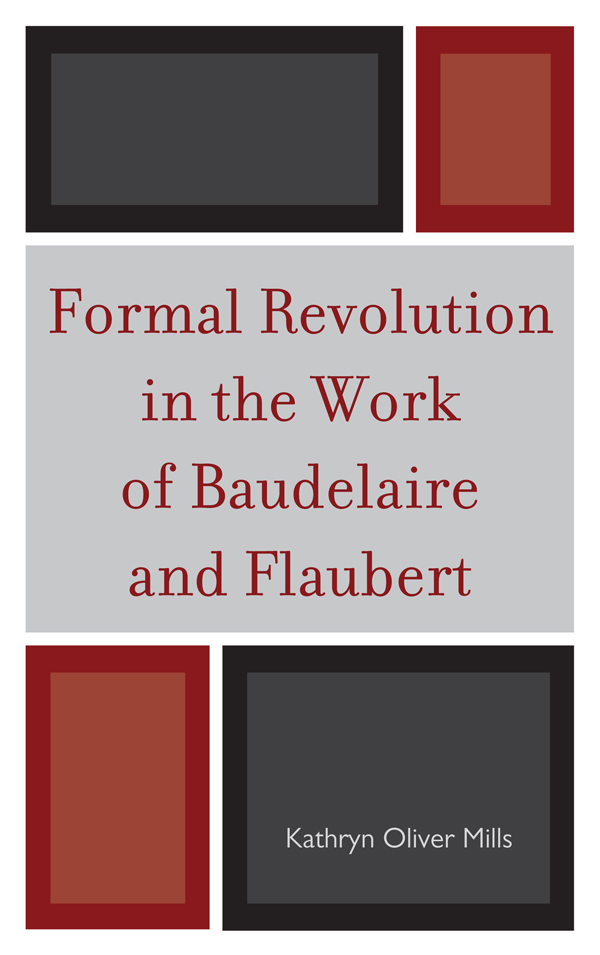
 The paper used in this publication meets the minimum requirements of American National Standard for Information Sciences Permanence of Paper for Printed Library Materials, ANSI/NISO Z39.48-1992.
The paper used in this publication meets the minimum requirements of American National Standard for Information Sciences Permanence of Paper for Printed Library Materials, ANSI/NISO Z39.48-1992.| 1 | Le Voyage: The End of Les Fleurs du mal and of Poetry in Verse |
| 2 | Historical Contexts: The Sketch Artist, the Philosopher, and Painting Modern Life |
| 3 | The Midas Touch of Verse: Les Fleurs du mal and Modern Life |
| 4 | Le Peintre de la vie moderne and Le Spleen de Paris : The Albatross Takes Flight |
| 5 | Deux bonshommes distincts [Two Distinct Fellows]: Flauberts Novels and Aesthetics in the 1860s |
| 6 | Toward a Modern Form: La Tentation de saint Antoine , Trois contes , and Bouvard et Pcuchet |
| Ce | Curiosits esthtiques |
| Corr | Correspondance (for either Baudelaire or Flaubert) |
| Oc | Oeuvres compltes (for either Baudelaire or Flaubert) |
Font size:
Interval:
Bookmark:
Similar books «Formal Revolution in the Work of Baudelaire and Flaubert»
Look at similar books to Formal Revolution in the Work of Baudelaire and Flaubert. We have selected literature similar in name and meaning in the hope of providing readers with more options to find new, interesting, not yet read works.
Discussion, reviews of the book Formal Revolution in the Work of Baudelaire and Flaubert and just readers' own opinions. Leave your comments, write what you think about the work, its meaning or the main characters. Specify what exactly you liked and what you didn't like, and why you think so.


